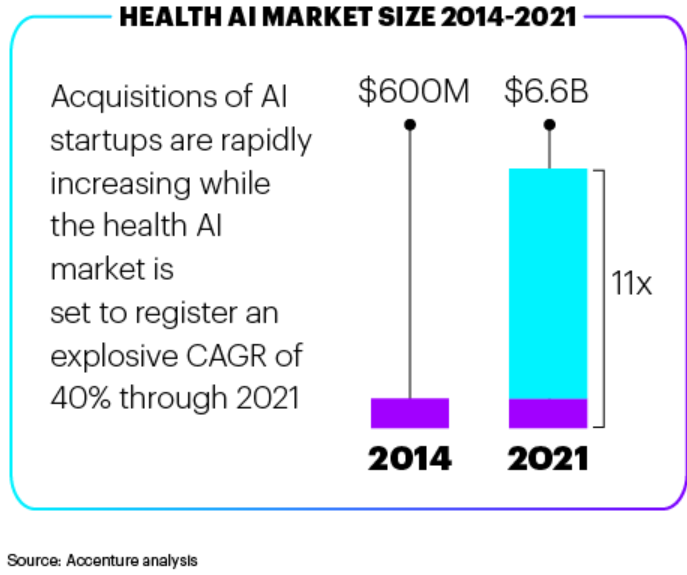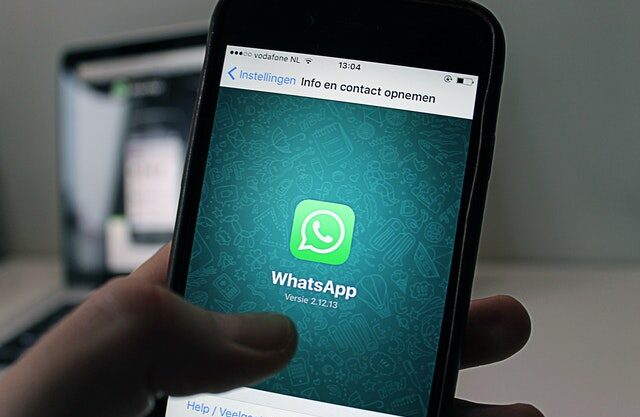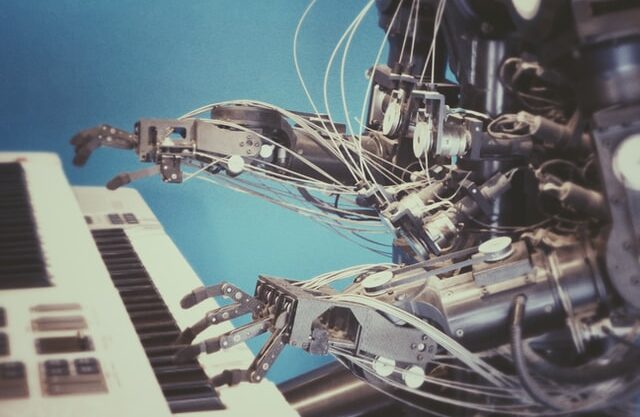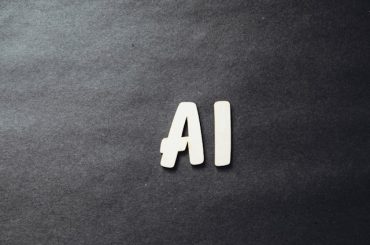Has it ever happened to you that you start browsing Netflix and hours later you realize that you have gone down the rabbit hole of watching movies with a common theme? This happened to me last weekend. I started watching the classic “ The Terminator” and then moved on to watch The Matrix, I Robot, and parts of Ex Machina. Artificial Intelligence is a common theme in all these movies.
The conclusion of this movie marathon left me with a seesaw of emotions where I was feeling hopeful and resentful moments apart. This also led me to explore where we are in our adoption of AI in the healthcare domain (decision making here has life or death consequences).
But before that, I needed to find out what exactly is Artificial Intelligence (AI)?
Wikipedia defines it as “the intelligence demonstrated by machines, unlike the natural intelligence displayed by humans and animals”. In simpler words, Artificial Intelligence helps perform tasks to simplify life and reduce the cost of execution. In healthcare, Artificial Intelligence or AI is being used to aid research scientist, doctors and patients. As I dug deeper, I was amazed to find out the level of technology adoption that healthcare sector has seen.

Eventually, doctors will adopt Artificial Intelligence (AI) and algorithms as their work partners. This leveling of the medical knowledge landscape will ultimately lead to a new premium: to find and train doctors who have the highest level of emotional intelligence.”
― Eric Topol, Deep Medicine: How Artificial Intelligence Can Make Healthcare Human Again
The biggest challenge with the treatment of any disease is to optimize the cost and time to diagnose a disease. These are those precious moments during which a life’s survival depends on the amount of time it takes to provide correct treatment post-diagnosis. The role of AI is seen best in these circumstances in healthcare.
Breast Cancer is one of the leading causes of cancer-related deaths in women in India. A 2018 report of Breast Cancer statistics recorded 1,62,468 new registered cases and 87,090 reported deaths. Significant technological advancement is required in this area.
Few healthcare companies are making great progress in Artificial Intelligence (AI):
Healthcare Companies like Niramai are working to create screening programs for early detection using devices that are powered by Artificial Intelligence (AI). These solutions are cheap unlike the ones in hospital and can be easily deployed to far-flung areas.
OncoStem, a startup, helps in the assessment of the aggressiveness of cancer using AI-powered algorithms. Also helps doctors plan personalized treatment for cancer patients. The process avoids unnecessary treatment costs and provides quick relief.
Tricog, a company in heart health space, collects data from devices from remote corners of the country. It uses AI to give real-time heart diagnosis to a cardiologist.
According to a report published by the center for the internet & society (yes, it is an actual body, search it!), Artificial Intelligence could help add Rs 957 billion to the Indian economy by 2035.
The biggest tech companies have also initiated various AI healthcare projects in India.
Google has been actively working with Arvind Eye Care, one biggest eye centers in the country, to treat patients losing eyesight due to diabetes using an AI-powered tool for accurate detection. IBM Watson, an AI engine by IBM, is being deployed across top Indian hospitals to bring in efficiency and improve patient experience & outcomes.
The world is going through a pandemic. AI algorithms deployed through patient monitoring devices are helping doctors and caregivers to provide treatment to the infected individuals, especially to critical cases even through distance monitoring.
But let’s not ignore the downside
With an increased degree of autonomy would be given to the algorithms with limited to no human interventions, the question of adoption becomes trickier. There are still three underlying issues with AI in healthcare
Trust– As per a survey by Accenture ~50% of patients are ready to trust AI for diagnosis or treatment. That’s a high number for a novel technology. The main question is: Can AI give the same level of comfort a patient needs during treatment?
Privacy– AI possesses whole new set of challenges due to the vast amount of data collection, making it a darling for hackers. Blockchain seems promising but it is relatively new to healthcare.
Ethics– What if the data AI machines are trained on is skewed? Who would take responsibility if AI goes wrong in making decisions? It’s about life or death after all.
As I finish writing this article, my wife is playing with her phone trying to use a Google AI released in context to the upcoming Independence Day. The program will convert a song sung by her to it into the sound of a flute mimicking the lyrics of Jana Gana Mann, India’s national anthem. She is not thinking twice as she uses the algorithm, but will that be the case if an AI-powered autonomic machine is preparing to operate on her?
Do Check out this video on “What is the healthcare workforce of the Future” that uses AI?
Interested in reading more General Strategy Stories? Check out our collection.
Also check out our most loved stories below

How Bata became India’s household name despite being a classy international brand?
Bata is not an Indian brand. It is as international as it can be. But what strategies made it India’s highest selling footwear brand?

Nike doesn’t sell shoes. It sells an idea!!
Nike has built one of the most powerful brands in the world through its benefit based marketing strategy. What is this strategy and how Nike has used it?

Domino’s is not a pizza delivery company. What is it then?
How one step towards digital transformation completely changed the brand perception of Domino’s from a pizza delivery company to a technology company?

What advertising strategy made TITAN an iconic watch brand?
What are the various advertising strategies that make Titan a consumer’s choice? How Titan decided to choose Mozart’s symphony as its tune for commercials?

WhatsApp “Photo Status” was a strategic move. How?
Whatsapp launched photo status in 2017. It was hated by many. But why it was a good move that improved the way you use application today?















